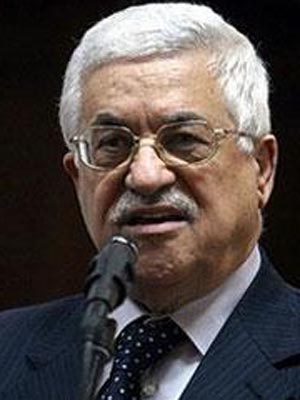Azerbaijan, Baku, November 6 / Trend , U.Sadikhova /
Palestinian Authority President's refusal to participate in the upcoming election is connected with the fact that the Palestinian leader wants to allow other members of the Palestine Liberation Organization to nominate and develop a new strategy for achieving progress in talks with Israel, said Adil Attiyya, deputy head of the Palestinian delegation to the European Union
"First, President Abbas wants to give others a chance to nominate, since five years are enough time [to govern], Attiyya, a member of the Palestinian ruling Fatah party, told Trend by telephone. - Secondly, because of the complexity of the peace process, President Abbas wants to give an opportunity to the members of the organization to develop a new strategy for achieving progress in addressing the issue of Israeli settlements."
On Thursday, the head of the Palestinian National Authority Mahmoud Abbas announced his refusal to re-run for the presidency in the January elections. However, Abbas did not describe the exact reason.
"I have informed my colleagues in the Executive Committee of Palestine Liberation Organization and Fatah's Central Committee of the unwillingness to participate in the next elections. I thank them for their trust, but please understand my position," said Abbas.
Arab media reported that Abbas' refusal to participate in the elections to be held on January 24 is linked with the failure of his efforts to achieve progress in the negotiations with Israel, which ceased almost a year ago.
Last week, the Palestinian Authority lost its last hope for successful negotiations, when the U.S. Secretary of State urged to resume negotiations without any demands to freeze construction of Jewish settlements in the West Bank - the main condition of the League of Arab States and Palestinians, as well as the United States until recent time.
According to Attiyya, this fact did not inspire the Palestinian president to continue negotiations, and therefore, he does not want to nominate again. The name of the Palestinian leader's successor is not yet known because until now the Palestinian Authority and Fatah did not put forward a list of candidates for the presidency, said the Palestinian diplomat in Brussels.
"I really do not know who will be nominated [from Fatah] for presidency instead of Mahmoud Abbas," added Attiyya.
He also expressed hope that Fatah will win the presidential election in January, which will be held simultaneously with the elections to the Legislative Assembly.
Mahmoud Abbas was considered the favorite for the upcoming elections, but as Israel's position in peace talks does not give a chance to the Palestinian Authority to succeed, by refusing the President Abbas enables other members of the Authority to develop a new strategy in peaceful dialogue," said Attiyya.
"The problem is not in the leadership of the Palestinian Authority, but in today's Israel's position," said Attiyya. And if the new Palestinian leadership does not want to fail in the negotiation process, it is necessary to develop a new plan and new strategy, said the member of Fatah.
"It is impossible to continue the peace process without respect for the interests of the Palestinians, so the new leadership of the administration should work towards developing a new strategy," said Attiyya.
74-year-old Mahmoud Abbas, also known as Abu Mazen, became head of administration in 2005, after the death of irreplaceable Palestinian leader Yasser Arafat. He is considered one of the leaders loyal to the PLO. During his presidency, Abbas faced strong political opposition led by Hamas movement, which gained victory in 2006 elections, one year later ousted Fatah forces from Gaza and took control of the enclave.
Despite some progress in peace talks mediated by the United States and the Middle East Quartet, after the right-wing government of Benjamin Netanyahu came to power in Israel, who refused to freeze construction of Jewish settlements, the Palestinian Authority refused to continue the dialogue.
And although the U.S. Administration expresses solidarity with Israel that the negotiations should be resumed without any preconditions, Mahmoud Abbas told U.S. special envoy to the Middle East, George Mitchell, that the Palestinians do not set preconditions, but require fulfilling obligations of the Roadmap, which envisages that all settlements must be frozen.






